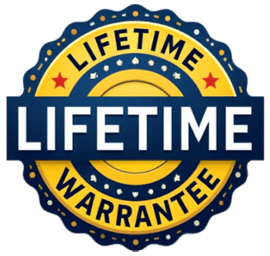How to Choose the Right Water Solution for Your Home
When it comes to maintaining the quality of water in your home, selecting the right water softener is crucial. Hard water, which contains high levels of minerals like calcium and magnesium, can lead to various issues such as scale buildup in pipes, reduced efficiency of appliances, and dry skin and hair. Understanding how to choose a water softener tailored to your household’s needs can significantly enhance your water quality and overall comfort. This guide will walk you through the essential factors to consider when selecting a water softener.
Understanding Water Hardness
What is Water Hardness?
Water hardness is primarily determined by the concentration of calcium and magnesium ions in the water. The higher the levels of these minerals, the harder the water. Hard water can cause various problems, including:
- Scale buildup in pipes and appliances
- Reduced effectiveness of soaps and detergents
- Dry skin and hair
Measuring Water Hardness
To determine the hardness of your water, you can either contact your local water utility or conduct a home water test. Water hardness is typically measured in grains per gallon (gpg) or parts per million (ppm). Understanding your water’s hardness level is the first step in selecting an appropriate water softener.
Assessing Your Household’s Water Usage
Daily Water Consumption
Before choosing a water softener, it’s essential to evaluate your household’s daily water usage. On average, a person uses about 80 gallons of water per day. To calculate your household’s total water consumption, multiply the number of residents by the average daily usage. For example, a family of four would use approximately 320 gallons per day.
Grain Capacity Requirements
Once you know your household’s daily water usage, you can determine the necessary grain capacity for your water softener. The grain capacity indicates how much hardness the unit can remove before it needs to regenerate. To calculate the required grain capacity, multiply your household’s daily water usage by the water hardness level. This will give you a clear idea of the softener’s capacity needed to meet your family’s needs.
Types of Water Softeners
Ion-Exchange Water Softeners
Ion-exchange water softeners are the most common type. They work by replacing hardness ions (calcium and magnesium) with sodium ions through a process called ion exchange. This method effectively reduces water hardness and improves overall water quality.
Dual-Tank Water Softeners
For larger households or those with high water usage, dual-tank water softeners are an excellent option. These systems have two resin tanks, allowing one tank to regenerate while the other provides softened water. This ensures a continuous supply of soft water, even during regeneration cycles.
Salt-Free Water Treatment Systems
Salt-free water treatment systems do not remove hardness minerals but instead condition the water to prevent scale buildup. These systems are ideal for those looking to avoid sodium in their drinking water. However, they may not be as effective in treating hard water as traditional salt-based systems.
Key Features to Consider
Regeneration Cycle
The regeneration cycle is a critical aspect of water softeners. It refers to the process by which the system cleans the resin beads and replenishes the sodium ions. Automatic regeneration systems are convenient, as they require minimal user intervention. Manual systems may save on initial costs but can be less convenient in the long run.
System Monitoring
Look for water softeners equipped with system monitors that alert you when salt levels are low. This feature ensures that your system operates efficiently and provides a consistent supply of softened water.
Energy Efficiency
Energy-efficient water softeners can save you money on utility bills. Look for models that have been certified for energy efficiency, as they will consume less power during operation and regeneration cycles.
Budget Considerations
Initial Investment
Water softeners come in a wide price range, from a few hundred to several thousand dollars. It’s essential to assess your budget and determine how much you’re willing to invest in a water softening system. Keep in mind that higher-priced models may offer better efficiency and longer lifespans.
Long-Term Costs
In addition to the initial investment, consider the long-term costs associated with operating and maintaining the water softener. This includes salt purchases, potential repairs, and energy consumption. A more efficient system may have a higher upfront cost but can save you money over time.
Installation Options
DIY Installation
If you’re handy and have some plumbing experience, you may consider installing the water softener yourself. Many systems come with detailed instructions, making DIY installation feasible for some homeowners.
Professional Installation
For those who prefer a hassle-free experience, hiring a professional for installation is a wise choice. A licensed plumber can ensure that the system is installed correctly and operates efficiently, reducing the risk of future issues.
Maintenance and Care
Regular Maintenance
To keep your water softener functioning optimally, regular maintenance is essential. This includes checking salt levels, cleaning the brine tank, and inspecting the system for any signs of wear or damage.
Troubleshooting Common Issues
Familiarize yourself with common water softener issues, such as low water pressure or insufficient softening. Knowing how to troubleshoot these problems can save you time and money in the long run.
Additional Water Treatment Options
Water Filters vs. Water Softeners
It’s important to understand that water softeners and water filters serve different purposes. While water softeners reduce hardness, water filters improve water quality by removing contaminants. Depending on your water quality issues, you may need both systems for optimal results.
Whole-House Filtration Systems
If your water supply has additional issues, such as chlorine or sediment, consider investing in a whole-house filtration system. These systems work in conjunction with water softeners to provide comprehensive water treatment.
Environmental Considerations
Impact on the Environment
When choosing a water softener, consider its environmental impact. Salt-based systems can contribute to increased sodium levels in wastewater, which may affect local ecosystems. Salt-free systems may be a more environmentally friendly option.
Water Conservation
Look for water softeners that are designed to conserve water during the regeneration process. Efficient systems can help reduce water waste and lower your overall environmental footprint.
Conclusion
Choosing the right water softener for your home involves careful consideration of various factors, including water hardness, household usage, and budget. By understanding the different types of water softeners available and their key features, you can make an informed decision that enhances your water quality and overall comfort. Whether you opt for a traditional ion-exchange system or a salt-free alternative, investing in a water softener is a step toward a healthier and more efficient home.



